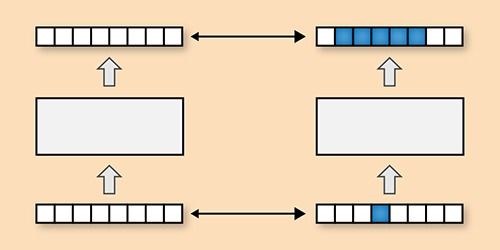A model based on Brownian motion describes the tsunami-like propagation of chaotic behavior in a system of quantum particles.
×
In daily life, “chaos” describes anything messy. In physics, the term has a more specific meaning: It refers to systems that, while subject to deterministic laws, are totally unpredictable because of an exponential sensitivity to initial conditions—think of the butterfly flapping its wings and causing a distant tornado. But how does the chaos observed in the classical, macroscopic world emerge from the quantum-mechanical laws that govern the microscopic world? A recently proposed explanation invokes quantum “information scrambling” [1, 3], in which information gets rapidly dispersed into quantum correlations among the particles of a system. This scrambling is a memory-loss mechanism that can cause the unpredictability of chaos. Developing a theory that fully describes information scrambling remains, however, a daunting task.
